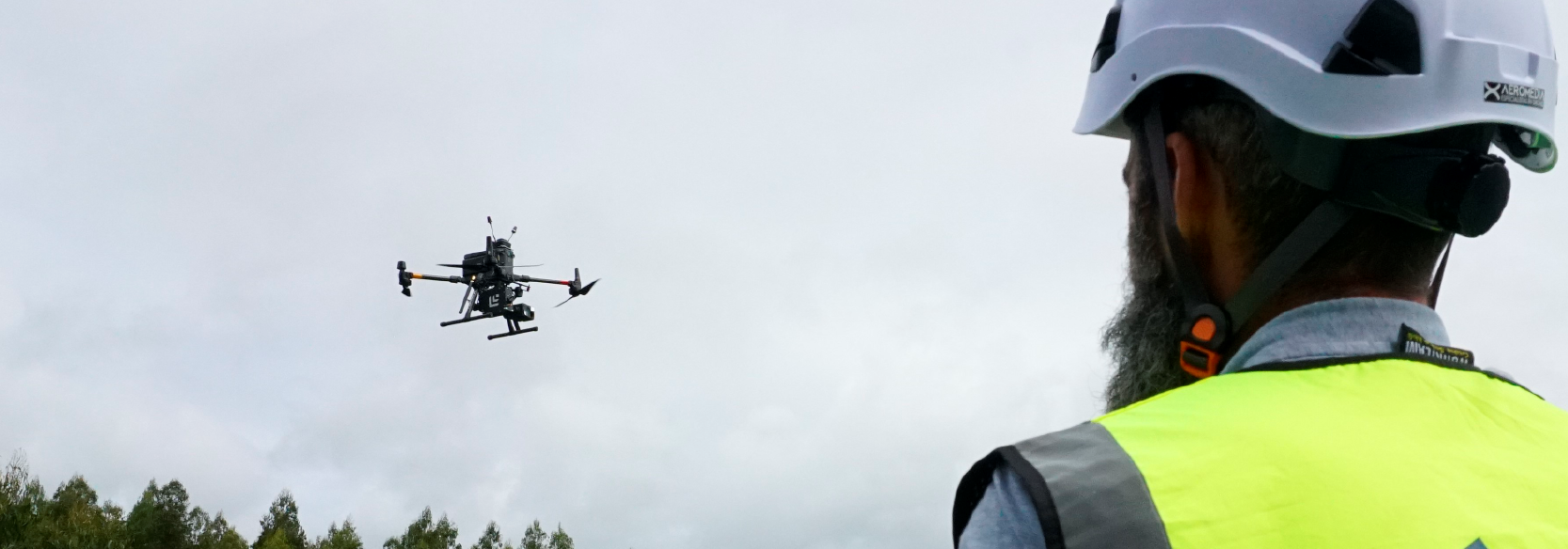- Forty-six percent of those over 70 years of age who go missing suffer from Alzheimer's disease and, in many cases, the outcome of the search proves fatal, even though they are only a few kilometers from their homes
- Localization systems and artificial vision algorithms will process images collected by UAV cameras at incredible speed to search for missing people and alert rescue teams
- DroneFinder will be fully up and running by the end of 2023 and able to integrate with emergency services, health and law enforcement systems

Aeromedia, Indra and ITG have developed an innovative drone and AI solution to find missing persons in record time and save lives. The system, developed for the Galician Emergency Agency within the framework of the Galician Aerospace Hub, has been financed by the Xunta de Galicia through FEDER Funds and will be integrated into the systems used by the public emergency services, health and law enforcement.
According to SOS Desaparecidos data, 46% of people over 70 years of age who go missing in Spain suffer from Alzheimer's disease. In many cases, the outcome of the search proves fatal, even though they are only 3 or 4 kilometers from their homes or the place where they were last seen. By the same token, in the case of active tourism or natural disasters, accidents or situations in which a person gets lost and has no way of communicating where he/she is are commonplace.
To solve the problem, DroneFinder automatically analyzes, in real time, large volumes of images collected by the drones' built-in dual video camera (RGB and thermal). The system can also detect whether the person is carrying an electronic device, such as a wristband or smartwatch. At the same time, the system sends a warning directly to emergency teams, minimizing response times while optimizing the resources used in the search, thus helping to save lives.
The ultimate goal is to locate people in record time since the first 48 hours are vital when finding a missing person, in particular people with cognitive impairment, neurodegenerative diseases or people with disabilities.
State-of-the-art Technology Collaboration
Aeromedia, a company specialized in RPAS (Remotely Piloted Aircraft Systems) services, has national experience in search services for missing persons and provides the hardware used to carry out the search through watches, smart bracelets or cell phones, as well as deploying the search operation with UAVs, hardware and software including an application for mobile devices to manage the activity of the search team. These tracking devices (bracelets, watches, etc.) have a battery life of up to two years and are notable for the monitoring capacity they provide from the user's home or place they are staying.
Indra, the global leader in technological engineering that has developed the OPV (Optional Piloted Vehicle) TARGUS aircraft within the scope of the Xunta de Galicia’s "Civil UAVs Initiative", will offer its expertise through a data processing center that will bring together all the information collected from various sources. The People Search Management System (PSMS) will centralize and store the data entries from the different systems and, in turn, provide end users with an interface from which they can monitor, in real time, the data captured and use them to be subsequently reproduced. It will also give the 112 emergency services real time access to the proposed functionalities from anywhere there is an Internet connection or cell phone coverage.
ITG Technology Center brings its extensive experience in Machine Vision to the table with a solution that will make it easier for the search team to perform the automated visual inspection of the images captured by the drones. The Artificial Intelligence-based technology can process and analyze the images coming from the dual cameras (RGB and thermal) carried by the drones in real time, day or night, and without human intervention. AI algorithms multiply the volume of images analyzed in a short period of time, thereby increasing the chances of finding people who have gone missing.
The DroneFinder project is fostered by the Xunta de Galicia within the framework of the Civil UAVs Initiative, as part of the Strategic Program 2021-2025, and is funded under the REACT-EU framework of the Galicia ERDF Operational Program 2014-2020 as part of the European Union's response to the COVID-19 pandemic. The technological solution will be fully up and running by the end of 2023.